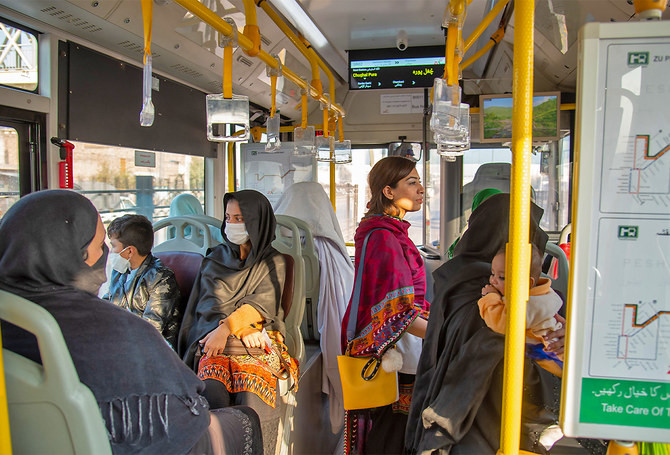
Troubled by the back-breaking inflation and exorbitant fuel prices Peshawar’s residents have made the Bus Rapid Transit (BRT) their transport of choice; resultantly, crippling the public bus service’s daily operations.
Trans Peshawar’s multi-billion project, which has won two awards, is beginning to wake up to the reality that it might not be enough to fulfil the city’s daily commute needs as bus arrival times have increased two-fold and the queues have
gotten longer.
Some conservative estimates suggest that around 0.25 million people use the service daily but the packed crowds at the BRT’s stations, tussling and fighting with each other to board buses, indicates otherwise. “The fuel price hikes have made the BRT an attractive
alternative,” said Wajid Khushal, who has recently started using the service to commute to work, “why should I pay Rs230 per litre for fuel, when I can just pay Rs30 for the entire journey?” Even though the fare is friendlier to Khushal’s pocket, he believes that the wait times test his patience.
“The buses arrive late and if you are further down in the queue then you have to wait more for the next bus.” Usman Mengal, who had just narrowly missed a bus after having patiently waited, concurred with Khushal. “It is certainly more affordable than using my motorcycle but the buses are full to the brim,” a visibly frustrated Mengal told The Express Tribune.
Mengal opined that it would serve the residents of Peshawar better if the government were to look into increasing the number of buses. However, Nauman Afridi, who had been sidelined in a queue multiple times, felt that even more buses could not solve the crisis BRT was facing. “The sign reads that the next bus will come in 2 minutes but it has been 10 minutes since I have been waiting.” Afridi, who has been regularly using the service since its inception to travel between Dabgari and Kohat Road, said that the BRT management had been stepping up on people’s nerves “long before the service got extra crowded due to fuel price increases.”
Apart from the BRT administration, Afridi had a bone to pick with the commuters as well, who he termed as uncouth. “People jump over each other’s shoulders just to get into the bus. Ever since the new found love for the service it is common to see people hurling abuses and fighting with each other.” However, after a moment of self reflection, Afridi came to the conclusion that the fighting was also the management’s fault. “Why does the security staff not step into ensure discipline? Are they paid to just stand and watch?” he questioned.
A young guard, who was standing nearby, whilst declining to give his name due to fear of the management, said that he saw little reason in facing the ire of passengers when the delays
were not his fault. “Scuffles between security staff and commuters have become a routine and we have been at the receiving end of a few beatings, so now we just stay away,” the 22-year-old security personnel told The Express Tribune. Trans Peshawar’s spokesperson, Sadaf Kamil, when asked about the frustration of the passengers and fear of BRT’s security team, whilst questioning the authenticity of everyone’s claims, said, “surely it was a rare case, since the department monitors everything.” Kamil, when asked if she was aware of the long delays, conceded that she was but quickly assured that these issues had already been addressed as the department was going to add to its existing fleet of 158 buses. “The buses will reach Karachi soon and then be transported to Peshawar after clearances. Hopefully that will decrease delays,” Kamil told The Express Tribune.


1725877703-0/Tribune-Pic-(5)1725877703-0-165x106.webp)



1726722687-0/Express-Tribune-Web-(9)1726722687-0-270x192.webp)












COMMENTS
Comments are moderated and generally will be posted if they are on-topic and not abusive.
For more information, please see our Comments FAQ